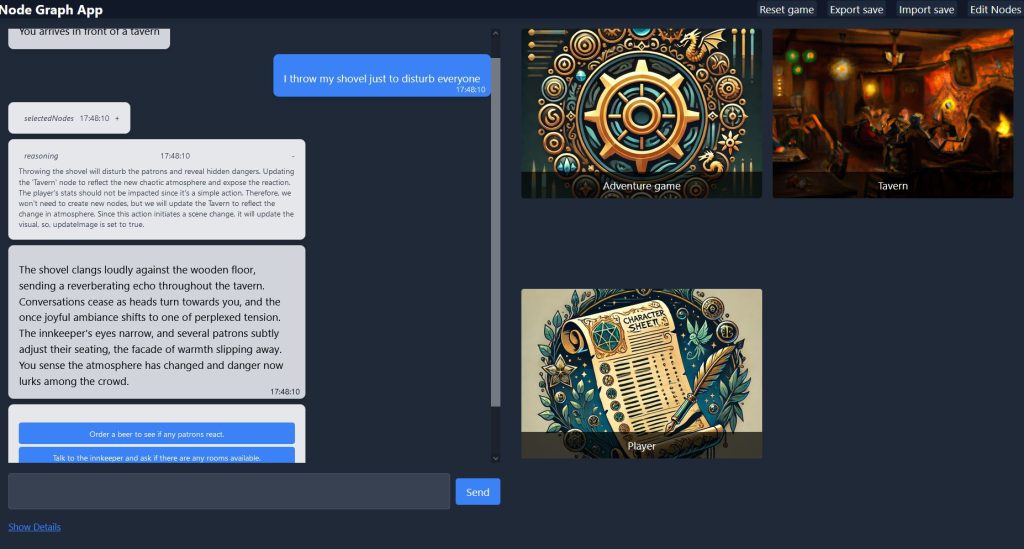Game-Shaper-AI is an AI-based software tool that interacts with AI Game-engines to address the challenges faced in the game development process, particularly for those with limited programming and game design experience. Traditional game creation requires significant technical skills and familiarity with complex game engines, making it inaccessible to many aspiring game designers. Additionally, existing methods often produce static content, lacking the dynamic and adaptive elements needed for engaging, personalized gaming experiences. Repetitive tasks in-game content creation, such as writing dialogue and crafting descriptions, further burden designers, limiting their focus on core mechanics and storytelling.
Currently, traditional game engines like Unity and Unreal Engine dominate the game development landscape, offering high levels of control and customization. However, these engines require extensive programming knowledge, which makes the initial learning process difficult. Some AI-powered game design tools exist that aim to simplify the process, but they often lack the comprehensive use of large language models (LLMs) that could further enhance dynamic content creation.
Game-Shaper-AI is a novel game creation tool that leverages a node-based design system and LLM integration. The node-based system provides a visual interface for building game elements and their interactions, making it more accessible to users without programming skills. The integration of LLMs allows for dynamic content generation, the creation of adaptive narratives, and responsive game worlds that can change based on player choices.
Game-Shaper-AI’s node-based design system represents game elements as interconnected nodes, allowing users to visually construct the game’s world, rules, and events. This method simplifies the design process by enabling designers to drag and drop components, connect nodes to define relationships, and visually map out the game’s structure. This approach contrasts with traditional coding, providing an intuitive and user-friendly way to develop games.
The core innovation of Game-Shaper-AI lies in its integration with LLMs. These models can generate natural language text, translate languages, and respond to questions, making them suitable for creating dynamic game narratives. By leveraging LLMs, Game-Shaper-AI can automate repetitive tasks like writing dialogue and crafting descriptions, thus freeing up designers to focus on more creative aspects of game development. The tool can also adapt game content based on player interactions, offering a personalized gaming experience that evolves with the player’s choices.
In conclusion, Game-Shaper-AI addresses significant challenges in the game development process by providing a more accessible and dynamic tool for game creation. Its node-based design system democratizes game development for users with limited technical skills, while its integration with LLMs introduces the potential for dynamic, adaptive game content.
The post Game-Shaper-AI: An Open-Source Game-Engine Designed for Evolving Stories appeared first on MarkTechPost.
Source: Read MoreÂ

